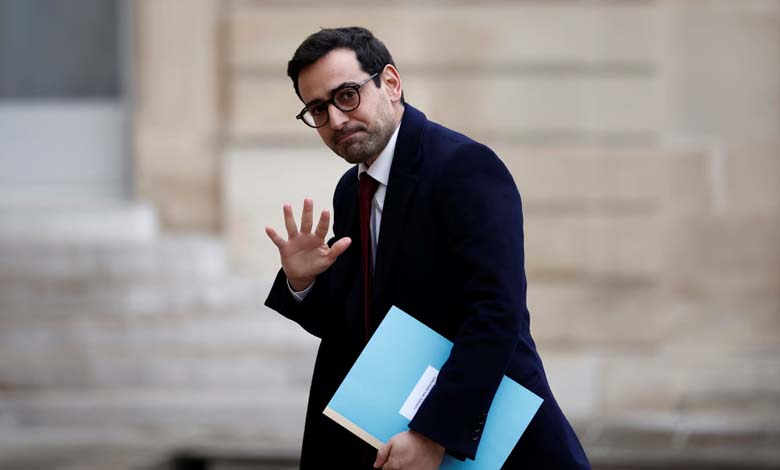France’s appointment of Stéphane Séjourné as Minister of Foreign Affairs is seen as an unfriendly gesture towards Morocco
The Moroccan media welcomes the appointment of Rachida Dati, who supports Morocco's core issues, as the Minister of Culture

French newspapers closely monitor the composition of the new French government, considering it amid President Emmanuel Macron facing an uncomfortable situation during his new presidential term, lacking absolute power due to not securing a majority in the recent legislative elections.
Apart from the internal context of the government composition, Macron‘s decision to appoint Stéphane Séjourné, known for his hostile stances towards Morocco, as the Minister of Foreign Affairs, draws attention as an unfriendly move towards the Kingdom, according to the description by ‘Le Monde’ newspaper.
The appointment comes amid efforts from both sides to end months of tension, described by media in both countries as a “silent crisis” due to France reducing visas for Moroccans and its reluctance to acknowledge the Sahrawi identity. In recent months, there were signs of easing tensions before Macron announced his new government members, including Séjourné and Rachida Dati, who took over the Ministry of Culture. Dati’s appointment was well-received by Moroccan newspapers, as she is known for her supportive stance on the Sahara and has actively worked to support the Kingdom in European and international forums.
The French newspaper notes that Dati’s appointment in the new government was welcomed in Morocco, while Séjourné’s appointment did not receive approval due to his anti-Morocco positions. Séjourné led a campaign against the Kingdom in the European Parliament, pushing for a resolution condemning what he claims are Moroccan human rights violations and freedom of expression, alongside his opposition to Morocco’s proposal to end the manufactured conflict in the Sahara.
‘Le Monde’ describes Séjourné, close to Macron, as making an unfriendly move towards Morocco due to his record of opposing the Kingdom’s interests. He led a campaign targeting the Kingdom in the European Parliament, promoting allegations of spying using the Israeli ‘Pegasus’ program. Rabat categorically denied these allegations, but Séjourné’s campaign, which angered the Kingdom, led to tension and a diplomatic vacuum at the Moroccan embassy in Paris, initiating a crisis between the two countries.
It remains unclear whether the new Foreign Minister, who succeeded Catherine Colonna, will continue the same hostile approach towards Morocco or prioritize his country’s interests in enhancing cooperation with the Moroccan partner. However, his presence in this position and his previous anti-Morocco stances raise questions about the future of Moroccan-French relations.
Rachida Dati’s appointment in the new French government holds significance for Morocco, given her well-known supportive positions on the Kingdom’s core issues, especially the Sahara, which is a non-negotiable national stance. King Mohammed VI has clearly outlined the basis of Morocco’s foreign relations, looking at them through the lens of the Sahara issue, making it the primary determinant of the Kingdom’s foreign policies.
Many countries have understood this approach and built partnerships with Morocco based on it, acknowledging the sensitivity of this national issue. The European and Western countries, in general, are increasingly recognizing Morocco’s sovereignty over its entire territory, including all its southern regions.
Dati’s appointment in the French government is seen as a positive sign for Morocco. She has been an advocate for the Kingdom in the European Parliament, expressing her support during her membership until 2019 and more recently during a visit to Morocco in May 2023, accompanying Eric Ciotti, the head of a delegation from the Republicans party.
During that visit, she called on France to recognize Morocco’s sovereignty over its Saharan territories, expressing regret for President Macron‘s policy regarding relations with the Kingdom. Dati is not the only one who raised her voice, demanding a clear stance from the French president on recognizing the Sahara‘s Moroccan identity. Prominent political figures in recent years have also urged Paris to follow the example of European countries that have recognized the Sahara‘s Moroccan identity, emphasizing the need to maintain strong and good relations with the Kingdom as one of the most important and significant partners in the region.












